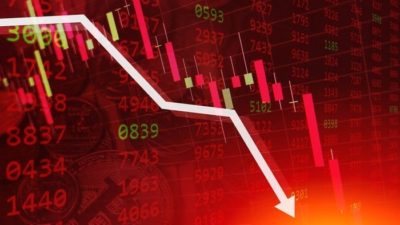This article was originally published on Fool.com. All figures quoted in US dollars unless otherwise stated.
You might not realize it, but two weeks ago marked one of the most important data releases of the quarter. November 14 was the last day for money managers and wealthy individuals with at least $100 million in assets under management to file Form 13F with the US Securities and Exchange Commission.
A 13F lets Wall Street professionals and everyday investors have a look under the hood to see what the brightest minds on Wall Street bought, sold, and held in the most recent quarter. Even though 13Fs have their flaws -- they're at least six weeks old by the time they're filed, meaning additional trades may have been made -- they can help investors identify the companies and trends garnering the attention of top money managers.
Although most billionaire money managers have used the 2022 bear market as an opportunity to buy high-quality companies at a discount, others haven't been able to run to the exit quickly enough. What follows are three ultra-popular stocks billionaires have been busy selling.
Tesla
There's arguably no stock billionaires sold more aggressively during the third quarter than electric-vehicle (EV) manufacturer Tesla (NASDAQ: TSLA). All told, five billionaire money managers pressed the sell button, including Jim Simons of Renaissance Technologies, Jeff Yass of Susquehanna International, Philippe Laffont of Coatue Management, Ken Griffin of Citadel Advisors, and Israel Englander of Millennium Management. Simons reduced his fund's stake by 99.9%, while the four other billionaire fund managers reduced their stakes by 16% to 55%.
Why run for the exit? One reason may be the realization that Tesla isn't immune to the cyclical challenges facing the auto industry. Tesla has historically been valued at a nosebleed premium to legacy automakers on the notion that it'll outpace these stalwarts in the sales and profit-growth department. However, COVID-related supply chain disruptions, especially in China, coupled with historically high inflation and a weaker US and global economic outlook, bode poorly for near-term EV sales.
Perhaps an even bigger downside catalyst is Tesla's own CEO Elon Musk. Although Musk is a visionary who's been largely credited with helping Tesla become one of the world's largest publicly traded companies, he's also become a significant liability for the company. Aside from the significant distraction of operating social media site Twitter, a large number of promises regarding the debut of new vehicles or innovations have failed to come to fruition. Tesla's valuation is very much dependent on Musk's visions becoming reality.
On the bright side, Tesla is profitable on a recurring basis, and the ramp-up at its two new gigafactories (Berlin, Germany, and Austin, Texas) should allow production and sales to quickly scale. But maintaining its North American market share will undoubtedly prove difficult as legacy automakers and newer players scale their own EV operations.
Walt Disney
Disneyland may be the "Happiest Place on Earth," but Walt Disney (NYSE: DIS) has been nothing short of a frowny face for billionaire investors. During the third quarter, billionaires Ole Andreas Halvorsen of Viking Global Investors, Simons of Renaissance Technologies, and Ray Dalio of Bridgewater Associates, all sold shares. In particular, Halvorsen and Dalio completely exited their respective fund's positions in Disney.
The about-face we've witnessed in Disney stock can likely be explained by two factors. First, the company still hasn't put its operating issues tied to the COVID-19 pandemic into the rearview mirror. China's zero-COVID strategy continues to hamper Disney's theme-park operations. Additionally, traditional moviegoing hasn't come close to achieving its pre-pandemic level.
The other issue is that Walt Disney's streaming services are racking up some jaw-dropping losses as they scale. While direct-to-consumer revenue rose 8% in the company's fiscal fourth quarter (ended Oct. 1, 2022), the segment's operating loss nearly doubled to $1.5 billion. Poor operating performance is not something Disney shareholders are used to.
However, the subscriber figures at Disney+ (164.2 million) have ramped up incredibly fast, and the company appears confident the segment will turn the corner to profitability by the end of fiscal 2024.
What's more, Walt Disney has exceptional pricing power and the ability to engage consumers like no other media company. In short, these billionaire sellers may ultimately regret their decision.
Meta Platforms
The third ultra-popular stock billionaires were busy selling in the third quarter is social media behemoth Meta Platforms (NASDAQ: META). Billionaires Stephen Mandel of Lone Pine Capital, Griffin of Citadel Advisors, and Simons of Renaissance Technologies, all slashed their stakes in Meta by multiple millions of shares from the sequential second quarter.
Perhaps the biggest knock against Meta is a weakening macroeconomic outlook for the US and global economy. Advertising is one of the first spending categories to be hit when the winds of recession begin blowing. Given that Meta generates 98% of its revenue from advertising, its top and bottom line are directly impacted by economic weakness.
Another plain-as-day concern billionaires have about Meta is CEO Mark Zuckerberg's exorbitant spending on the metaverse -- the 3D virtual world that allows users to interact with each other and their environment. Reality Labs, the company's metaverse operations, recorded $1.4 billion in sales through the first nine months of 2022, but racked up a jaw-dropping $9.4 billion in losses. Worse yet, spending is expected to increase in 2023. The end result has been reduced free cash flow and lower quarterly profits.
But as with Walt Disney, I'm skeptical of the skeptics. Meta owns four of the most popular social media assets on the planet (Facebook, Facebook Messenger, WhatsApp, and Instagram) and should benefit from strong pricing power during extended periods of economic expansion.
Furthermore, Meta is sitting on a healthy net cash pile totalling nearly $32 billion. The company has levers it can pull if it wants to boost its free cash flow. The point being that Meta Platforms' operating model is so dominant, and its balance sheet so flush with cash, it has the financial flexibility to make aggressive investments in the metaverse. After all, the metaverse could be the next multitrillion-dollar opportunity.
This article was originally published on Fool.com. All figures quoted in US dollars unless otherwise stated.








